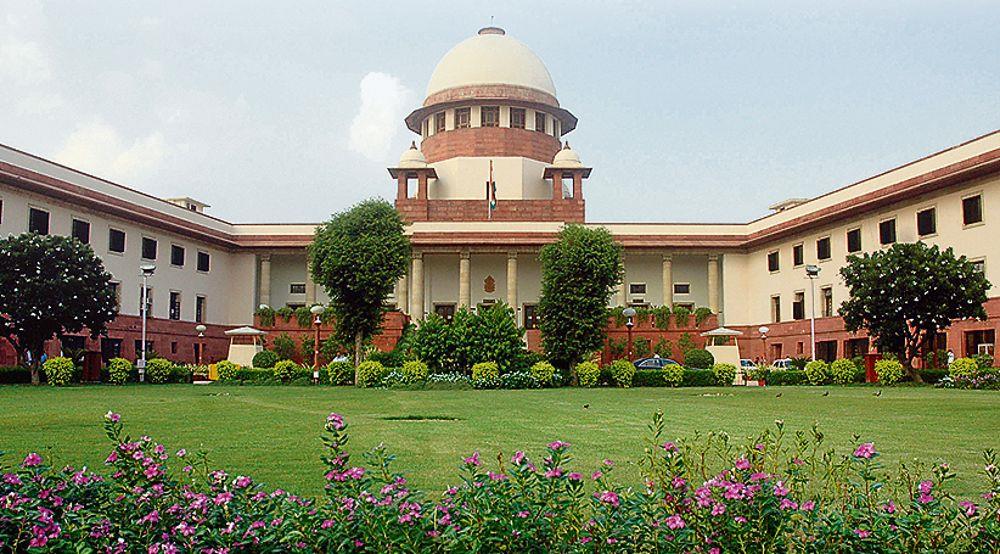
Situational: Psychological factors tend to have an effect on court procedures. File photo
GS Bajpai
Vice-chancellor, Rajiv gandhi national University of Law, Punjab
How do judges think? How do they reach their decisions? These questions have always intrigued legal academia, lawyers and litigants. Recent research has shown that there are factors, other than legal, which impact the outcomes in the courts. Forensic psychology suggests that there is a crucial effect of the personality of judges and the impact of various psychological factors on court procedures. This has significantly unravelled how courtroom situations impact the decision-making process in the court.
Judicial opinion is a mere justification of a judge’s desires. This observation by Theodore Schroeder in his impactful paper, ‘The Psychologic Study of Judicial Opinion’, fuelled a sensational debate decades ago about judicial behaviour. Later, Richard A. Posner, a noted judge and a professor in the US, also said that the US Supreme Court ‘is not an ordinary court but a political court, or more precisely a politicised court, which is to say, a court strongly influenced in making its decisions by the political beliefs of the judges’.
Granting bail, imposing punishment and allowing injunction in civil disputes are not necessarily matters associated with the law. Judges asking for Hindu Rashtra (Meghalaya High Court), skin-to-skin touch test of sexual assault in a POCSO case (Bombay High Court) or telling the rape accused to get a rakhi tied by the victim (MP High Court) are essentially matters of invoking the attitudinal or behavioural moorings by the individual judges. Factors like the past and present professional and personal history and life events of a judge drastically determine several things in a judicial process which are essentially considered to be a judicial outcome.
C. Herman Pritchett of the University of Chicago researched on Supreme Court judges in the US, including their agreements with other judges, dissents etc. during the 1940s. He tested the hypothesis that judges were not merely motivated by the statutes, precedents and other such factors, but also by ‘ideological preferences’ and arrived at the conclusion that this factor indeed influenced judicial decisions. Noted researcher Charles G. Haines also found that “judicial decisions are affected by the judge’s view of public policy and by the personality of the particular judge rendering the decision. To Haines, the factors most likely to influence judicial decisions are: (1) “direct influences” which include: (a) political affiliations and opinions; (b) legal and political experiences; (c) intellectual and temperamental traits; and (2) “indirect and remote influences” which include: (a) family and personal associations, including wealth and social status and; (b) legal and general education.”
Similarly, adjudication of disputes is guided by various factors. Judicial precedents are often a factor influencing the decision. In normal circumstances, judges comply with the decisions of the higher courts and the behaviour of complying with such decisions is considered ‘legally appropriate’. Reversal of such precedents has a cost associated as they could be overturned by the high courts or affect prospects of promotion of judges. Fear of being reversed on appeal, overall public opinion, their mood, gestures or tone of the lawyers or witnesses and the desire to appear unbiased or neutral are contributing factors in judicial decision-making.
Judges are usually categorised as liberal, conservative or between this spectrum based on political ideology. It is theorised that the decision of a judge is influenced to bring the law in line with their political ideology and attitudes. There are also a variety of other factors such as the defendant’s personal details and features along with systemic features factoring into judicial behaviour.
Despite the best efforts of judges to put aside inherent biases, emotions, attitudes, language in the courtroom and other factors, numerous studies have determined that even judges are vulnerable to and rely upon the cognitive decision-making process akin to a layperson. Due to the high caseload, judges are under time pressure and likely to resort to cognitive shortcuts.
Studies suggest that judges are vulnerable to the influence of hindsight bias (perceiving past events as more predictable than they actually were), framing bias (influenced by the manner that information is framed), anchoring bias (relying heavily upon the first or pre-existing information), egocentric biases (relying heavily on own perspective), and representativeness heuristic (ascertaining likelihood of an event by comparing it to a model that exists in one’s mind).
Many researchers believe that judicial opinions are often a reflection of the personal impulse of a judge and the character of these impulses is determined by the judge’s lifelong series of previous experiences, with their resultant integration in an emotional tone. These predispositions, with varying degrees of significance, “unconsciously attach themselves to the conscious consideration of every problem” a judge confronts. Judicial conduct may be traced “by a chain of causation running back to the earliest infancy”. The study of analytic psychology attempts to uncover some of the “potent, yet submerged impulses governing the actions of judges” and concludes that “there can never be a judge without predispositions (or prejudices).” Jerome Frank presents that a mere cough, twang or gesture by a lawyer or witness may elicit these unconscious biases which are constantly operating and thus, influence the judge’s ruling. Additionally, the conscious desire of the judge to be admired as someone who is not prejudiced against a particular group or class may dictate his or her decision in a particular case. Frank concludes that “the particular traits, dispositions, biases and habits of the particular judge will then often determine what he decides to be the law.”
Despite legal training, it was found that judges are prone to exhibit stereotypes such as gender bias, manifested in victim-blaming or castigating a sexual assault victim for her conduct; demeaning a mentally weak person or imposing higher penalties on social considerations.
Courts have great powers, including the power to invalidate Acts enacted by Parliament. Courts are also endowed with a degree of judicial discretion having a direct bearing on the decisions. Therefore, it is essential to increase emphasis on the study of judicial behaviour and to understand factors influencing judicial behaviour to enhance judicial independence, efficiency, public trust and implementation. It can be said that regardless of their legal training, judges are no different than laypersons in being prone to cognitive biases. Some studies indicated that if judges are provided with increased time and detailed information to examine and calculate, their training will help in processing information differently than laypersons. Judicial academies have a lot do in this regard.
Views are personal
Join Whatsapp Channel of The Tribune for latest updates.




























